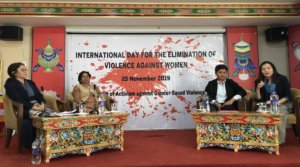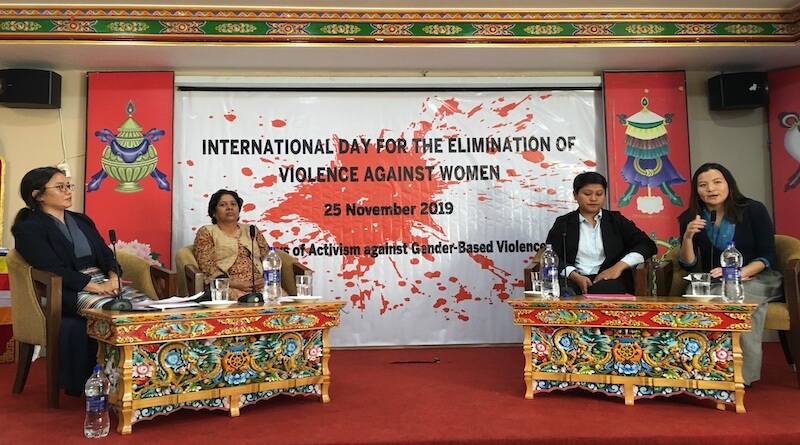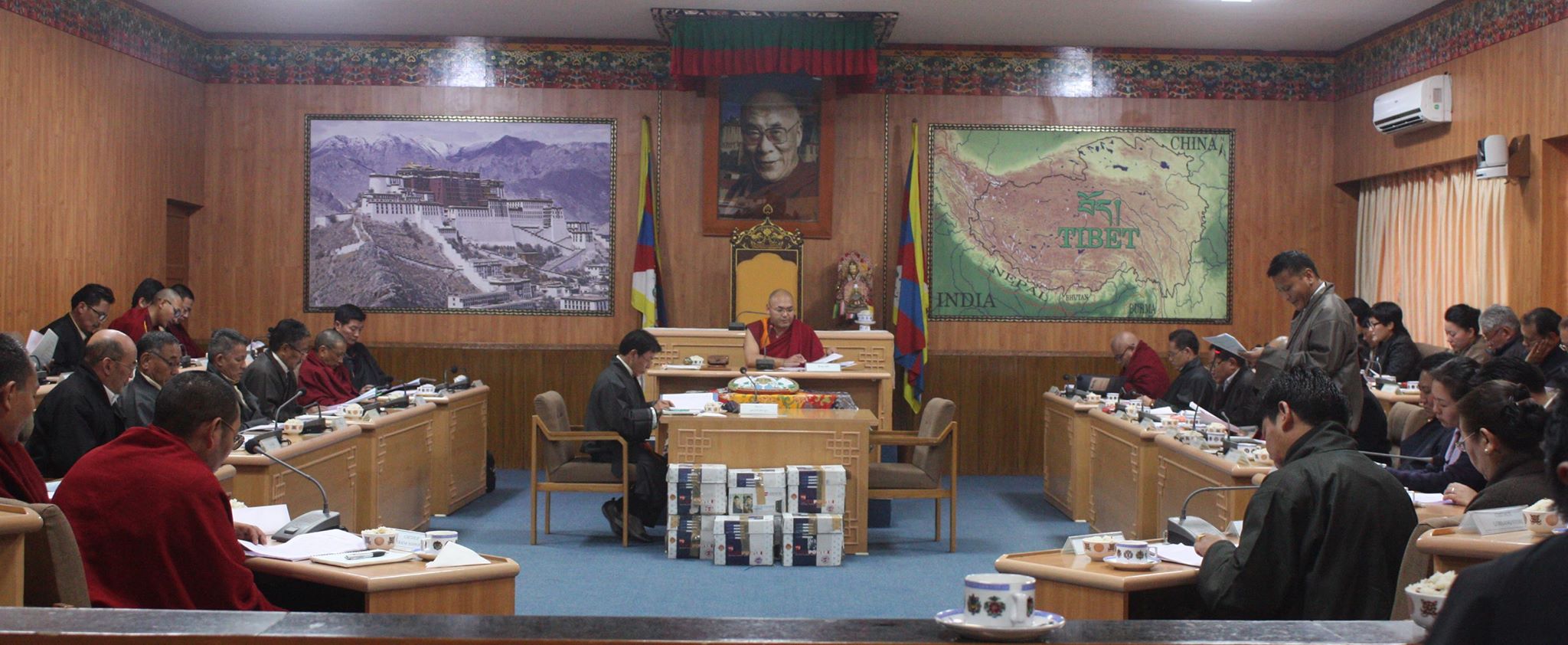TCHRD calls on Tibetan survivors to open up on International Day for the Elimination of Violence against Women

DHARAMSALA, 25 Nov: The Tibetan Centre for Human Rights and Democracy (TCHRD) today launched its first video campaign to end Gender Based Violence(GBV) and called on Tibetan Women to break the silence as it joined the UN’s 16 Days of Activism Against Gender-Based Violence.
The event began with the screening of a video message on compassion from His Holiness the Sakya Trizin.
“In Vajrayana, the higher levels of Buddhism, women are considered a symbol of wisdom. And harming and mistreating women is similar to violating the root commitments of a practice,” His Holiness said in the video addressing the crux of the matter.
His Holiness’ message was followed by TCHRD’s first video featuring Kunsang Dolma, a feminist and the author of the book ‘A hundred thousand white stones; an ordinary Tibetan’s extraordinary journey that narrated her ordeal of being raped by her neighbour in Tibet at just 15 years of age. She encouraged survivors to speak up and said ‘ there are many men who support us and it is important that they(survivors) share their experiences with others so that we can reduce sexual assault and abuse.”
Dharamshala Municipal Corporation Mayor Rajni Vyas who attended the event as the Chief Guest applauded TCHRD for their initiative and spoke about her experiences dealing with the issue.
“I am well accustomed with the subject, I have dealt and worked with over 2000 such cases in the last 15 years,” the Mayor said and added that the issue is prevalent across the world owing to social stigma and the existing system of male domination in offices that deals with helping such cases.
“If a lion is on the prowl in a village, the entire village will try to get together to catch the predator whereas if a girl/women from a village gets harassed or raped, the entire village will blame the girl,” the mayor said.
“I have dealt with rape cases where the victims range from infant girls to elderly women. We have to change the way we think rather than how women should dress.”
Executive Director of TCHRD, Tsering Tsomo speaking at the Launch event of ‘16 Days of Activism against Gender-based Violence’: Tibetan Women Break Silence said that her organisation’s association with the issue is not something new.
“It is very important to fight against gender-based violence and to work towards its elimination, therefore, we need to inform and educate all individuals about gender-based violence. The biggest challenge we faced over the course is the survivors staying bottled up due to societal stigma,” she said.
“It is very important for them to open up and speak up about their ordeal in order to stamp out the abuse of women and girls.”
The statistics are always scary when it comes to the number of instances of sexual or physical violence against women and girl as it is widespread and rampant across the world and the sizeable exiled Tibetan community is no special.
Tenzin Pelyoun, Gender activist and co-founder of Drokmo said that based on her research, a staggering 38% of Tibetan children from five schools have admitted to having experienced sexual violence.
“Punishing the accused does not solve the problem. it is also important that we provide all possible support to the survivors, such as psychological support and legal support as well as rehabilitating them if the need arises,” she said.
While it is rampant, it goes unreported due to the inability of the authorities to deal with it or their knack of putting it under the carpet, said Tenzin Dawa, a researcher from the Dharamsala-based rights group.
Dawa has travelled across eight Tibetan settlements in Northern India to interview survivors of Gender-Based Violence. “All those who choose to speak openly or anonymously about their experiences of GBV merit respect and admiration,” she said.
Recalling an interview with a mother of a 10-year old attempted rape victim in Shimla, she highlighted how the apathetic authorities and their amity towards abusers show how silenced victims and discriminatory social practices normalise GBV crime.
“They didn’t ask me if I conducted medical tests, instead, the perpetrator’s family received all the sympathy. that man threatened my daughter, covered her mouth and fingered her private pars. it was clearly a case of attempted rape,” Dawa said quoting the mother.
She remembers being told by an expert that the lack of standardised term and clear understanding of the matter has been caused by not challenging the matter enough and the experiences have left a strong mark on her.
“We often deny or dow play the existence of GBV issues in our community, but the ground reality proves otherwise.”
In line with the global 16 Days of Activism Against Gender-Based Violence, TCHRD will release a video each throughout the 16-day campaign out of the 33 interviews they have conducted that details stories of GBV faced by Tibetan girls and women from eight Tibetan settlements in Northern India.
16 Days of Activism Against Gender-Based Violence is an international campaign to challenge violence against women and girls. The campaign runs every year from 25 November, the International Day for the Elimination of Violence against Women, to 10 December, Human Rights Day.






